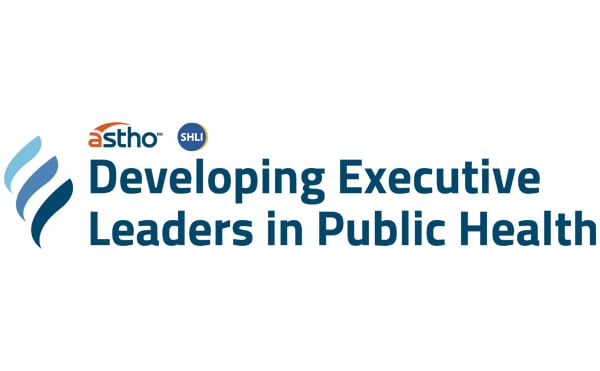Embracing the DiSC Personality Assessment for Leadership Development
June 20, 2023 | ASTHO Staff
 As part of the Diverse Executives Leading in Public Health (DELPH) program, ASTHO equips DELPH scholars with leadership development tools to become better managers and leaders. One of these tools is the DiSC assessment.
As part of the Diverse Executives Leading in Public Health (DELPH) program, ASTHO equips DELPH scholars with leadership development tools to become better managers and leaders. One of these tools is the DiSC assessment.
The DiSC assessment helps leaders create a common language around improving teamwork, communications, and productivity in the workplace. DiSC represents four main behavioral style preferences through the following profiles: decisive (D), interactive (i), stabilizing (S), and cautious (C).
The assessment opened our scholars to conversations with one another around common tendencies, pitfalls, hurdles, and successes. In this blog post, we asked the scholars to reflect on their assessments and discussion with their peers, expanding their understanding of “influence” as a leader. They share how they use the assessment results to tap into their leadership influence and how DiSC enhances leadership impact.
ABRAHAM ANDERSON:
Leveraging your influence as a leader involves embracing your role in developing connections and obtaining the trust of your followers. Being a leader is not without problems; some individuals may avoid the challenges that arise, while others may accept them with open arms.
Being self-aware of your personality, habits, traits, and DiSC leadership style can enable you to leverage your strengths better and overcome your leadership flaws. For example, my “D" and “i" style combination has helped me to be results-oriented, vocal, and influential through my charm and assertive actions. I can establish trusted relationships with my coworkers, resulting in a culture of honesty, psychological safety, and mutual respect.
MICHELLE MATHEW:
The DiSC exercise provided a better understanding of my behavioral style as a leader. While not necessarily surprising, the breakdown of my assessment results allowed me the opportunity to reflect and see how my leadership aptitude can be valuable, which will be important to building and leveraging influence.
In order of score, I ranked the following: stabilizing, cautious, interactive, and decisive. Given these results, I will work to align them with my influence as a leader. My team will see consistent steadiness as I patiently and thoughtfully address various matters, whether the urgency is present or not. Though not always easy, I will continue to prioritize my partnerships through nurtured relationships and will always view my time doing so as an investment.
BRANDY EMILY:
Understanding who I am as a leader and how I interact with my teams is a vital part of being an effective leader. It helps me be aware of my behavioral style, find ways to play to my strengths, and be more intentional in the areas where I don’t respond naturally or instinctively.
Though no leader is perfect or excels in all four domains, those that take the time to understand their strengths and acknowledge their weaknesses can find balance, either through intentional personal growth and development or through partnering with others that complement in areas where you might naturally score lower on the scale.
DONIELLE HYDE:
The DiSC assessment can promote awareness of leaders’ strengths and weaknesses. As a leader of influence, self-awareness can help leaders better understand what they bring to the table and how it can be beneficial in different situations. It also allows leaders to pinpoint the areas where they may require more growth and development. That way, they can more intentionally advance their personal growth as a leader.
My DiSC results reaffirmed my understanding of my leadership style. As a person who is high in “S” and “C,” I am an excellent listener and strive to create environments that promote a sense of security. I also create balance in high-stress situations by bringing structure and patience. I expect a high quality of work from my team and believe in following the rules.
HEATHER PANGELINAN:
My DiSC assessment revealed that I identified as high in the behavior components of interactive, stabilizing, and cautious. To no surprise, I scored the lowest in the decisive category. As a leader of influence, being aware of my communication and behavioral preferences will help me capitalize on the areas that are my strengths and allow me to improve areas that need focus. Understanding my behavioral preferences will help me more effectively respond to the needs of those around me and the professionals I work with.
EDITH GAINES:
When you are aware of how you behave, you know how to adapt to different situations. My assessment results indicated that my behavior styles are high in stability and cautious but low in decisive and interactive. My stabilizing nature means I prefer a more controlled, deliberative, and predictable environment. Since I am introverted, to adapt to different situations, I can warm up a bit more when meeting new people by trying to be more enthusiastic and inquisitive. It takes a lot of energy for me to persuade others in a convincing manner for a sustained period, so I could also aim to take myself less seriously and be a bit more flexible regarding procedures and options.
PANGELINAN:
The DiSC assessment serves as a tool that helps in understanding our behavior so that we may utilize key self-characteristics to influence, motivate, and impact the actions, behaviors, and attitudes of others. As leaders of influence, being aware of our communication and behavioral preferences helps us capitalize on our areas of strength. It offers us the opportunity to improve areas that need focus.
Related Content

Developing Executive Leaders in Public Health
ASTHO and the Satcher Health Leadership Institute at Morehouse School of Medicine began the DELPH program in 2021 with funding from CDC’s Center for State, Tribal, Local, and Territorial Support. The program recruits mid-to-senior-level governmental public health professionals from underrepresented groups in public health leadership to support learning, networking, and professional development opportunities to grow a diverse cohort of leaders nationwide.